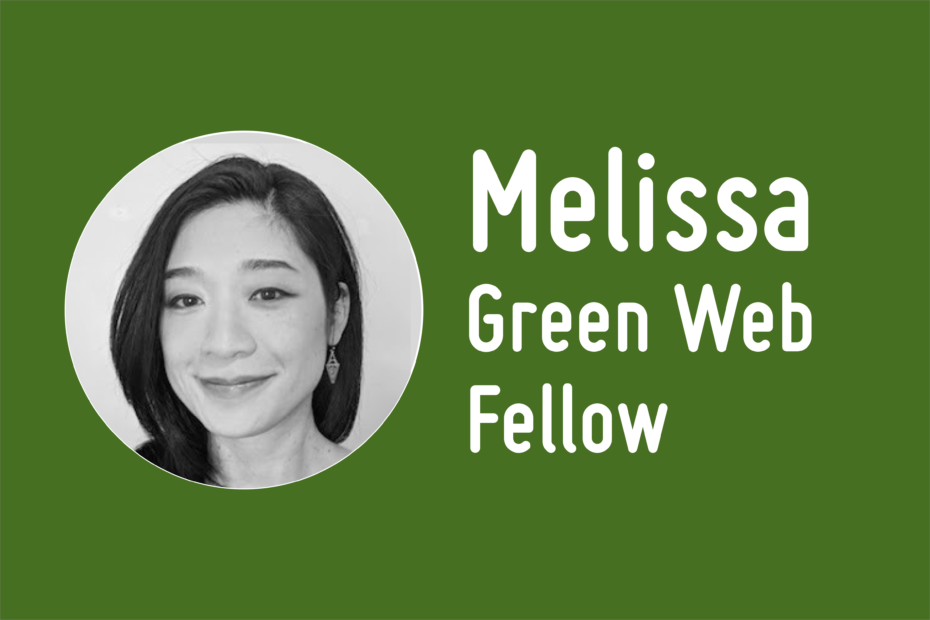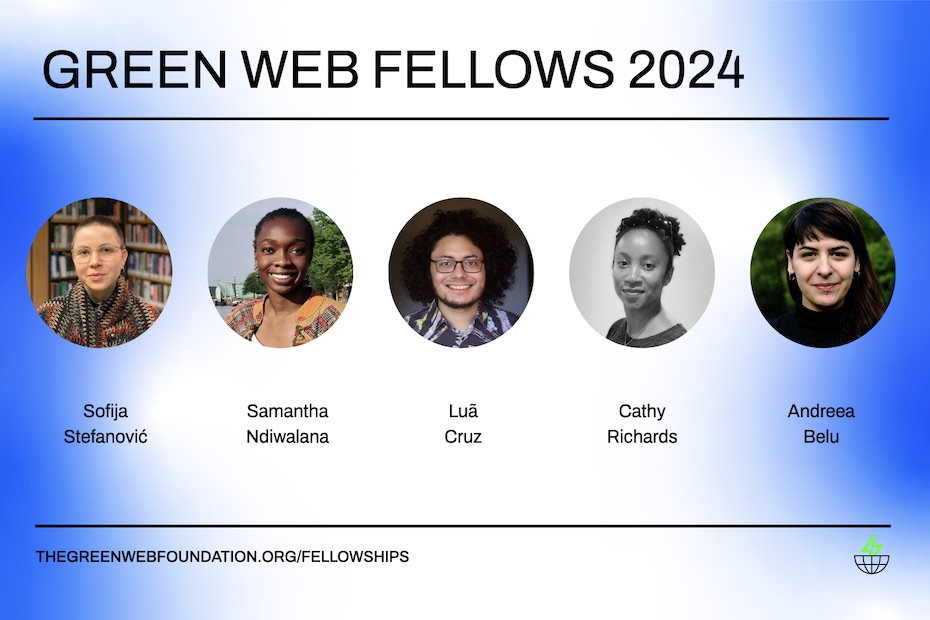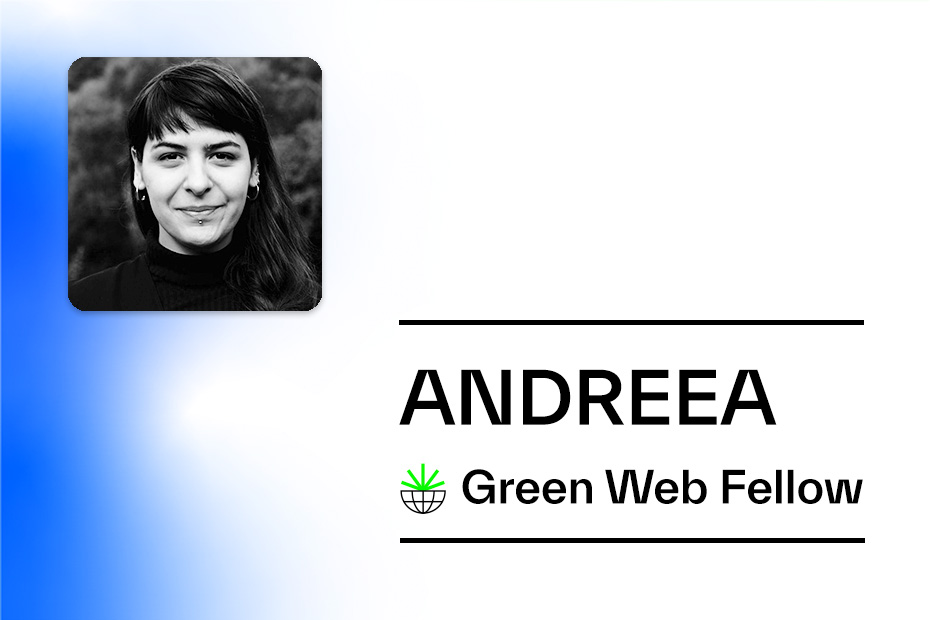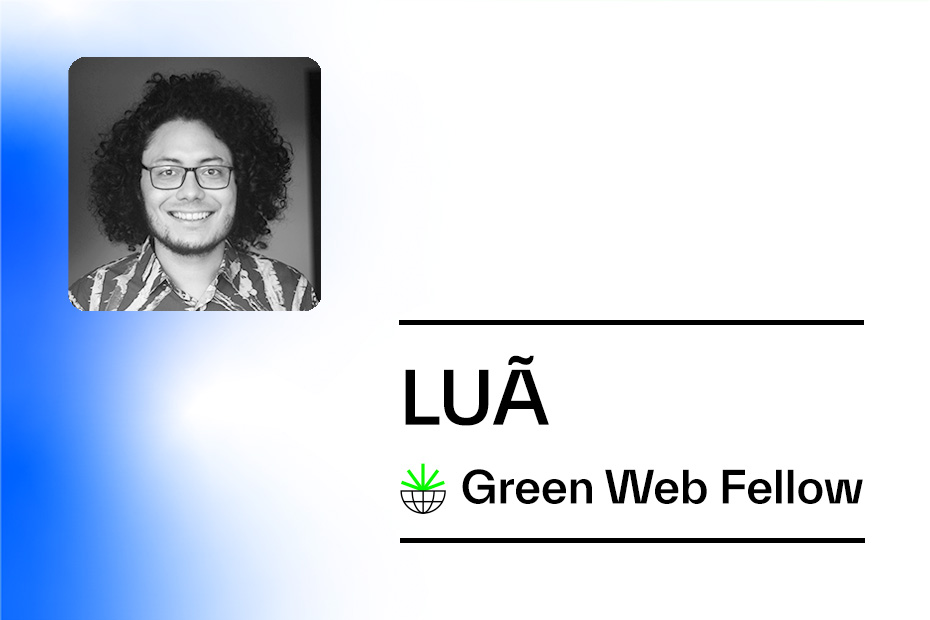In our last posts we introduced Hannah Smith , Emilio Velis, and Fieke Jansen, fellows the Open Green Web syllabus programme. In this post, we are thrilled to introduce Melissa Hsiung, and learn more about her work.
Meet Melissa
Melissa is a co-organizer for ClimateAction.tech (CAT), an online community of tech professionals who are integrating climate action into their work. She’s also working on CARL, a climate action resource library for workers, and studying Sustainability Management at Columbia University.
What does a sustainable and just internet mean to you?
My understanding of justice & sustainability is still evolving. To me, at this moment, a sustainable and just internet is:
- On a physical level, it is an internet that runs on renewable energy and uses circular, repairable hardware.
- On an individual level, a sustainable and just internet keeps people safe from online and real-world dangers and respects their privacy.
- On a social level, the internet is available to all. It facilitates collaboration, knowledge, and understanding. It has checks against disinformation, fraud, harassment, and other anti-social activities.
In your opinion, what are the most important things internet professionals should do to advance climate justice?
I’m in the early stages of understanding how internet professionals can advance climate justice. Even though I can create a list of internet issues relating to climate justice, the two subjects still feel very separate to me. It’s easy to think of the internet as digital-only, detached from the physical world. Meanwhile climate justice is physical, local and interpersonal — something that governments are responsible for.
I know that I’m not alone in this thinking, and that it will take time & practice to shift this perspective. So I think one important step is for internet professionals to start questioning the default tech narratives — the ones that tell us we’re innovative and smart and the future belongs to us.
More concretely, we could start by asking, “Why am I [and other tech professionals] being paid so much? Who benefits from my work? What are the social & environmental benefits and costs if my work succeeds? How will I know?”
What role does open source play in your practice? What about peer learning and open education?
If the internet and open source didn’t exist, I would probably be working at a print shop or a bar right now (or both) and questioning my life choices. Fortunately, the internet & open source do exist, and I was able to get started in tech by tinkering with blogs and building sites for friends. Later, I became a freelance WordPress developer which led to project management and then product management. The sites and apps I worked on used open source tools as well.
I am a big fan of peer learning and open education! I try to start peer learning groups wherever I go. They’re often small and informal, but the support and connections are invaluable.
What do you look forward to learning about in this fellowship program? What unique perspectives or skills would you like to contribute?
I’m interested in learning about what is needed for a sustainable, just internet at the city level. I’m in New York City, where there is a strong civic tech and open data community. I believe there is a lot of potential in bringing the climate justice movement, the civic tech community, and the greater tech/startup community closer together.
I’m also excited to learn from the other fellows in the program. Their have very different backgrounds and expertise; I feel very fortunate to be part of this group.
My unique perspective is probably that of an “average” (North American, upper-middle class, cis, hetero, able-bodied, well-represented) tech professional who just wants to “build things” and “solve interesting problems”. So I can help translate some of the more abstract topics into plain language. I also have some experience in public wifi projects, local news media, and online communities.
Anything else you’d like to share? About your fellowship plans, about the intersection of the internet, climate justice and openness, or your work in general?
My fellowship plans are pretty open right now. Some things that I’m considering working on include:
- Interviews & group discussions to understand the space
- Tools for facilitating discussions
- Tools evaluating technology projects
- A workshop or event to share & test out the tools
I welcome any feedback and ideas. I’ll be posting my notes on github.
Thank you!
Up next: Introducing the other fellows
Five fellows are in the Green Web program, and each week we’ll introduce another one. After that, they’ll be blogging here as they chronicle their learning and experiments exploring this field.
Stay up to date
You can subscribe to our web feed with a feed reader, join our newsletter, or follow us on Twitter at @greenwebfound.



